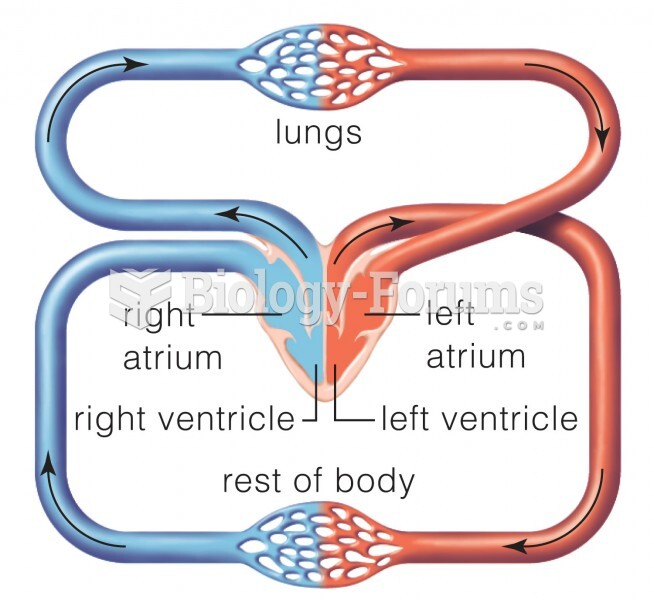Answer to Question 1
Correct Answer: 1
Rationale 1: The client's ECG is usually monitored continuously during the infusion of milrinone (Primacor).
Rationale 2: Hypotension, not hypertension, is an adverse effect of milrinone (Primacor).
Rationale 3: Vital signs should be assessed continuously, not every 15 minutes, while the client receives milrinone (Primacor).
Rationale 4: Ventricular dysrhythmias, not atrial fibrillation, are an adverse effect of milrinone (Primacor).
Global Rationale: The client's ECG is usually monitored continuously during the infusion of milrinone (Primacor). Hypotension, not hypertension, is an adverse effect of milrinone (Primacor). Vital signs should be assessed continuously, not every 15 minutes, while the client receives milrinone (Primacor). Ventricular dysrhythmias, not atrial fibrillation, are an adverse effect of milrinone (Primacor).
Answer to Question 2
Correct Answer: 2
Rationale 1: In response to decreased cardiac output, the body releases epinephrine and activates the renin-angiotensin-aldosterone system, leading to increased heart rate and blood pressure. While this would compensate for lower cardiac output in a normal client, it has a deleterious effect in heart failure, making it worse. This is not a sign that the client's heart is doing better.
Rationale 2: In response to decreased cardiac output, the body releases epinephrine and activates the renin-angiotensin-aldosterone system, leading to increased heart rate and blood pressure. While this would compensate for lower cardiac output in a normal client, it has a deleterious effect in heart failure, making it worse.
Rationale 3: There is no reason to suspect the readings are incorrect.
Rationale 4: While excitement could cause sympathetic stimulation, increasing blood pressure and heart rate, there is no indication in the question that the client is excited.
Global Rationale: In response to decreased cardiac output, the body releases epinephrine and activates the renin-angiotensin-aldosterone system, leading to increased heart rate and blood pressure. While this would compensate for lower cardiac output in a normal client, it has a deleterious effect in heart failure, making it worse. The client is not recovering and there is no reason to suspect the readings are incorrect. While excitement could cause sympathetic stimulation, increasing blood pressure and heart rate, there is no indication in the question that the client is excited.







